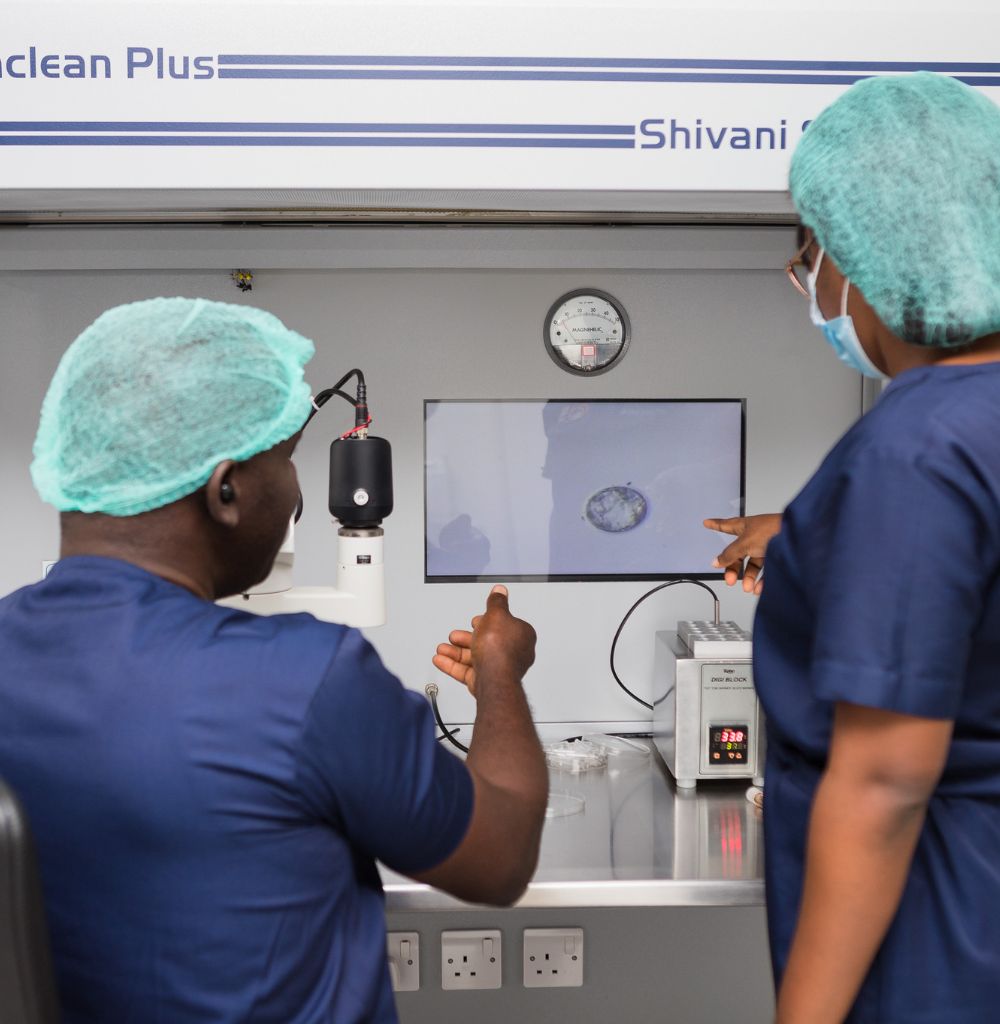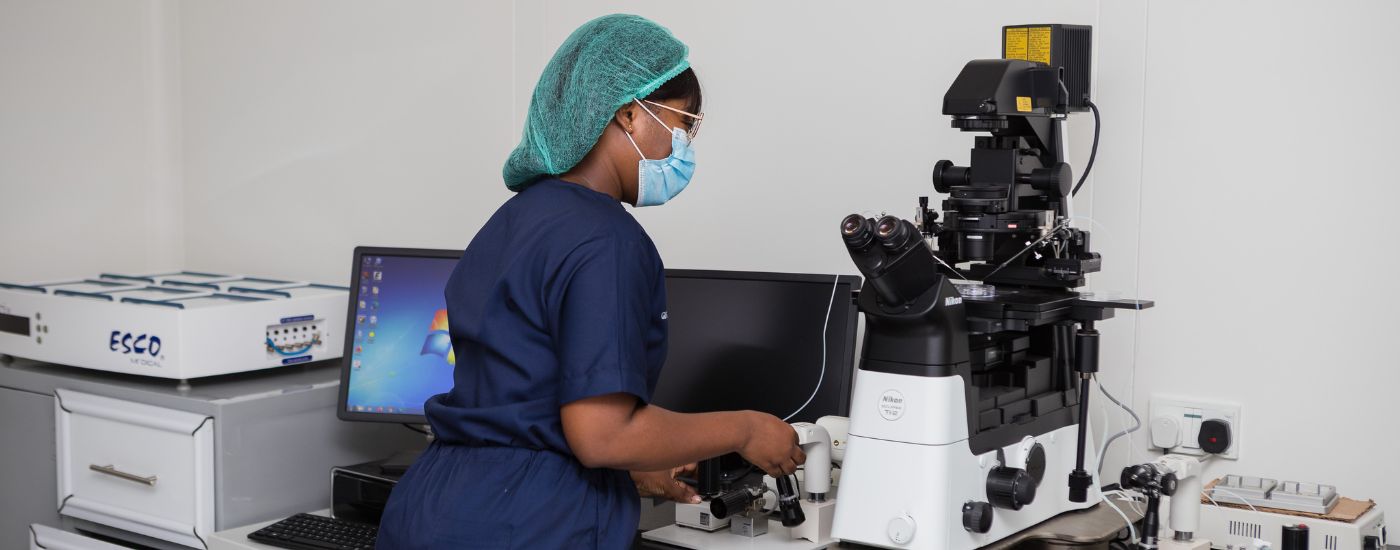What is IVF?

Who needs IVF?
IVF can benefit anyone experiencing fertility issues. Below are some of the patient types who might benefit.
Unexplained Infertility
Where a couple struggles to conceive and no specific infertility cause is found
Damaged Fallopian Tubes
Women with blocked or damaged fallopian tubes can benefit from IVF treatment
Male Factor Infertility
Men with low sperm count, poor sperm motility, or abnormal sperm morphology
Women with Increased Age
Fertility tends to decline as a woman’s age increases, particularly after 35
Single Women
Single women may wish to have a child using IVF with donor sperm
Couples with Genetic Disorders
Couples who are carriers of genetic disorders may choose IVF
IVF Excellence
We recognise the significance of every journey and aim to support you throughout. Watch the video to discover how we make your experience with us as positive and successful as possible.
The IVF Process
IVF is a complex and highly effective fertility treatment that involves several key steps. Here's a high-level look at how the process works.
Ovarian Stimulation
The ovaries are stimulated to produce multiple eggs. Hormonal treatment encourages the ovaries to produce several mature eggs, increasing success rates.
Egg Retrieval & Sperm Collection
The matured eggs are retrieved from the ovaries. At the same time, a sperm sample is processed to separate healthy, motile sperm from other cells.
Fertilisation & Embryo Monitoring
The eggs and sperm are then combined, monitored and cultured in an incubator, and embryologists monitor their development closely.
Pregnancy Test & Follow-Up
A blood test is performed to check for pregnancy. If positive, further tests (like ultrasounds) will be done to confirm the pregnancy and monitor development.
Why choose us
Advanced Technology
We leverage the latest fertility treatments and technologies to provide the most effective care
Patient-Centred Approach
We prioritise the well-being of our patients and spend time understanding your unique needs
Compassionate Support
You receive the highest quality care and emotional support throughout your fertility journey
Proven Success Rates
Our clinic boasts high success rates, giving you confidence that you are in good hands
Frequent questions
How long does the IVF process take?
The IVF process typically takes about 4 to 6 weeks. This includes ovarian stimulation (which takes 10-14 days), egg retrieval, fertilization, embryo culture, and embryo transfer. The entire process can take longer if multiple IVF cycles are needed or if there are delays in treatment.
How successful is IVF?
The success of IVF varies depending on several factors, including age, cause of infertility, embryo quality, and the clinic's expertise. On average, the success rates are around 40-50% for women under 35, but the rates decrease with age. It’s important to note that success can vary from individual to individual.
How many IVF cycles will I need?
Many patients will conceive after the first IVF cycle, but some may require more than one. On average, about 3-4 IVF cycles are needed for couples who are unsuccessful on their first attempt. Your doctor will monitor your progress and provide advice on whether additional cycles are necessary.
Can I have IVF with my own eggs?
Yes, many women undergoing IVF use their own eggs, but the chances of success depend on factors such as age and ovarian reserve (the number and quality of eggs). If a woman’s eggs are not viable or she is of advanced age, egg donation may be an option.
Can IVF work for women over 40?
While IVF success rates decrease with age, especially after 40, many women over 40 can still have successful pregnancies with IVF. Some may opt to use donor eggs (from a younger donor) to improve the chances of success.
How soon can I find out if IVF is successful?
You can find out if IVF has been successful about 10-14 days after the embryo transfer. This is typically done through a blood test to check for beta hCG, the pregnancy hormone. If the result is positive, further tests and ultrasounds will be done to confirm the pregnancy.
Can I undergo IVF if I have health conditions like diabetes or PCOS?
Yes, many women with health conditions like polycystic ovary syndrome (PCOS) or diabetes can successfully undergo IVF. However, it’s important to work closely with your healthcare provider to manage these conditions during the IVF process, as they can affect fertility and pregnancy.
Can IVF be done with a gestational surrogate?
Yes, IVF can be used with a gestational surrogate when a woman is unable to carry a pregnancy due to health issues or other factors. In this case, the embryo created through IVF (using either the intended mother's eggs or a donor's eggs) is transferred to the surrogate’s uterus.
Our other treatments
Learn more about our other fertility treatments and fertility services




